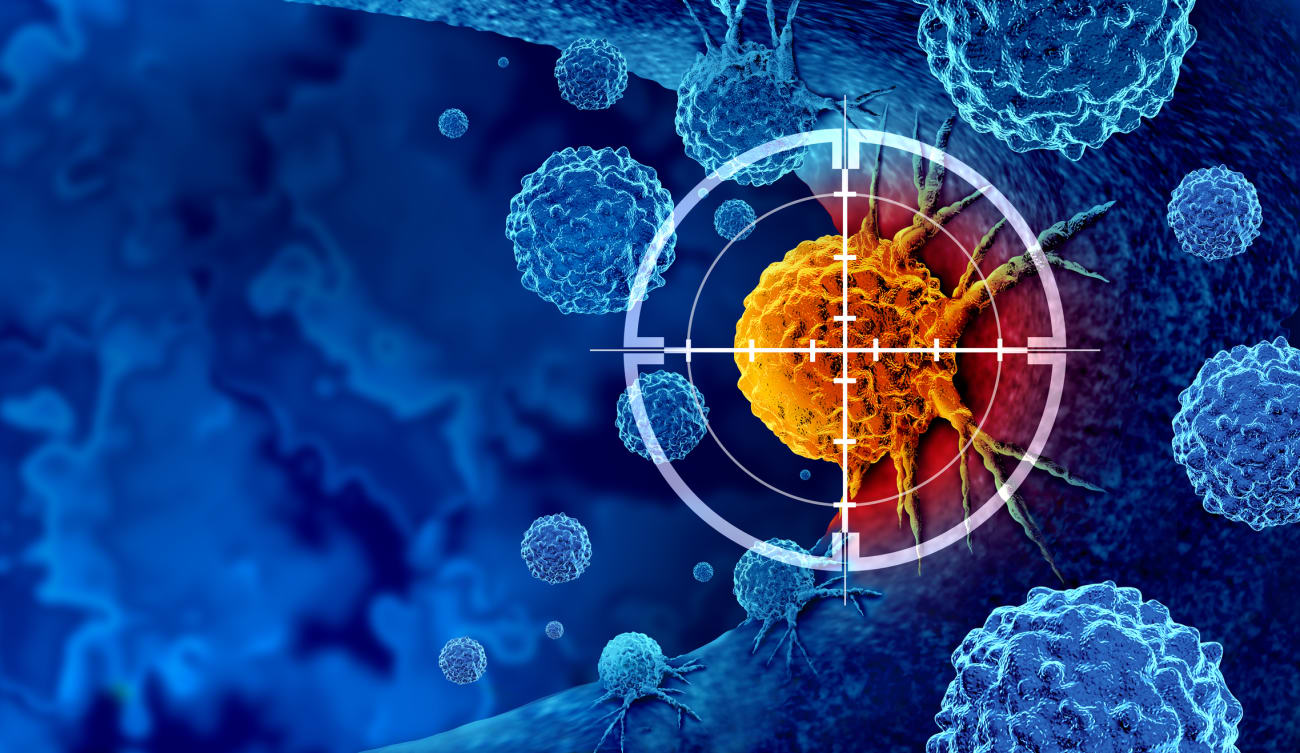Exciting results from a Hopkins-led study have catapulted a lowly immune system protein into the spotlight as a promising new target for prostate cancer immunotherapy. B7-H3 is a presumptive immune “checkpoint,” a tiny padlock that restrains the body’s powerful immune cells and prevents them from fighting cancer. “B7-H3 is expressed on the majority of prostate cancer cells,” says Eugene Shenderov, M.D., Ph.D., Co-Director of the Johns Hopkins Prostate Cancer Multidisciplinary Clinic and medical oncologist and cancer immunologist.
Could blocking this protein with a checkpoint-inhibiting agent and/or immune activator be a game-changer for some men with high-risk prostate cancer? This was the focus of a recent Phase II clinical trial led by Shenderov, urologist Mohamad Allaf, M.D., and medical oncologist Emmanuel Antonarakis, M.D. (formerly at Hopkins, now at the University of Minnesota).
In the trial, 32 men with high- or very high-risk prostate cancer who were scheduled for radical prostatectomy at the Brady received neoadjuvant therapy: six weekly infusions of a B7-H3-targeted antibody called enoblituzumab. They had surgery two weeks after the last dose, and their prostate tissue was examined.
Did enoblituzumab have an effect? It sure seemed to be: “21 patients (66 percent) had an undetectable PSA 12 months after surgery,” says Shenderov. Moreover, “in some men, enoblituzumab therapy appeared to lower the Gleason grade group between biopsy and prostatectomy.” This finding is preliminary, he adds, and needs to be proven in larger trials. But what is clear is that the tumor microenvironment showed significant changes in activity, particularly in the presence of cancer-fighting T-cells and other robust immune cells. This work was published in Nature Medicine.
“Enoblituzumab therapy offers a promising new route for potentially minimizing recurrent disease after prostate cancer surgery for men with high or very high-risk disease,” says Shenderov. Based on these results, Shenderov, Allaf and colleagues at Harvard, Northwestern, Minnesota, and Mayo Clinic have designed a larger randomized trial for men with high-risk localized prostate cancer: The Help Elucidate & Attack Longitudinally (HEAT) Prostate Cancer Trial (NCT06014255). Enrollment will begin in February 2024.

